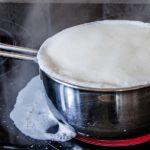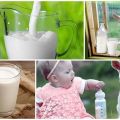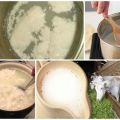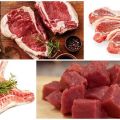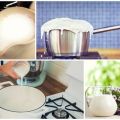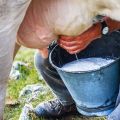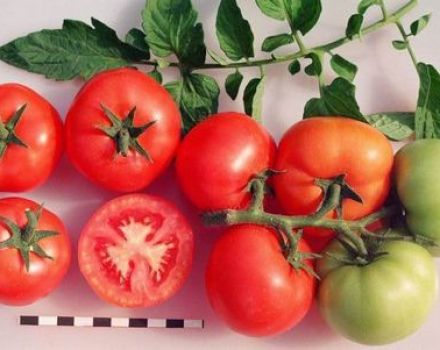Is it necessary and for how long to boil goat milk, product storage rules
The question of whether it is still necessary to boil the goat milk yield is very relevant. There is no definite answer to it. In terms of nutritional value, this product is close to that of a breast, so it is quite possible to replace a cow product with it. The composition of goat milk is unique, does not cause allergies, and has a beneficial effect on children. With its help, weakened babies are nursed. Boiling should be discussed separately.
Can goat milk be boiled?
Logically, it is quite possible to subject goat milk to heat treatment. It won't get any worse, but boiling is guaranteed to eliminate the presence of microorganisms. Another question is that when heated, some useful substances can be destroyed. There is no compromise.
Let lovers of fresh milk drink it calmly without boiling. All the rest have every reason to play it safe. This problem becomes especially relevant if the product, goat's milk, is purchased from private livestock breeders. There is no 100% guarantee that goats are kept in appropriate sanitary conditions. And when milking, overflow, clean dishes are used.
What is it for?
Of course, unboiled milk, both goat's and cow's, is extremely beneficial from the point of view of nutritionists. It contains protein, fat, calcium, carotene, capric and linoleic acids. It is no coincidence, according to legend, that a special state farm was created near Moscow, where they brought goats of the Saanen breed to supply the product to the party elite. By the way, raw milk contains a lot of ionized calcium, which is not resistant to boiling. It is indispensable for the treatment of peptic ulcer disease, for the removal of heavy metals (for example, in case of poisoning or radiation), in the process of rehabilitation of cancer patients. Goat milk is a source of raw materials for the production of brine cheeses, feta cheese.
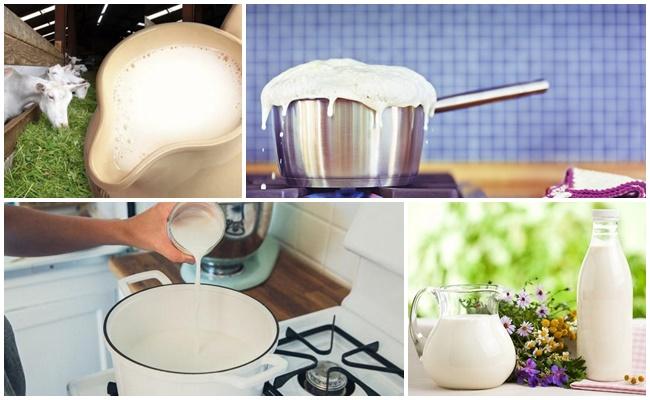
But before drinking milk bought on the market or from a "friend's grandmother", it is better to boil it. Since such a measure will relieve many intestinal infections, a set of microorganisms. Especially if the product is intended for a child. By analogy with boiling raw water, everyone knows the benefits of life-giving forest springs and springs. But for some reason, people continue to methodically boil water, thereby saving themselves from the "charms" of acquaintance with alien bacteria. Therefore, there is little choice. You know that you (the child) will not be hurt by the steam product - drink it raw.
If you are not sure, if you doubt the cleanliness of the goat owners, boil it. This procedure will not significantly worsen the quality of milk.
Product selection rules
With all the advantages, goat milk has one small drawback: it often has a specific taste and smell. This is due to the presence of fatty acids that enter the product from the sebaceous glands located on the udder of the animal.
Breeds were bred in which milk is practically devoid of unpleasant components. A simple procedure allows you to partially get rid of these moments: washing the udder before milking. It is also important to keep animals in normal conditions, cleaning the corral.
Then the presence of these factors will be minimal, and the milk tastes almost like cow's. It greatly affects the quality of the product and what the goat was fed with: grass from the mountain slopes, environmentally friendly plants or whatever, on free grazing. It is believed that the Crimean goats give a pleasant, sweetish milk: they are grazed on the hills, mountains overgrown with lavender.
Quality goat milk is white, it will never turn yellow. Cream should not float in it. Only experienced tasters can determine the product by its aftertaste. There should be no signs of sugar, sediment. If you doubt, don't take it better. Ideally, you should buy milk, the quality of which is confirmed by a certificate.
And further. A good product will definitely turn sour. This can be seen by leaving some milk in a warm place.
How to do it correctly?
If you still decide to boil, then you should take into account a few simple rules. By the way, at the same time boiling will show whether there are any "tricky" additives in the milk or not. Here they are:
- Processing should not be extended over time. The boiling point of milk is 100.5 degrees. According to laboratory research, goat milk can withstand 130 degrees for 10 minutes without destroying nutrients. In practice, it is better to reduce this gap to 5.
- It is strongly not recommended to repeat the procedure several times. The end result is anything but milk.
- Do not use a microwave oven or boil without stirring.
- It is better to process before use. Raw fresh milk can be stored in the refrigerator for up to 3 days without any problems. Only first it should be poured into a clean dish (jar or saucepan, can).
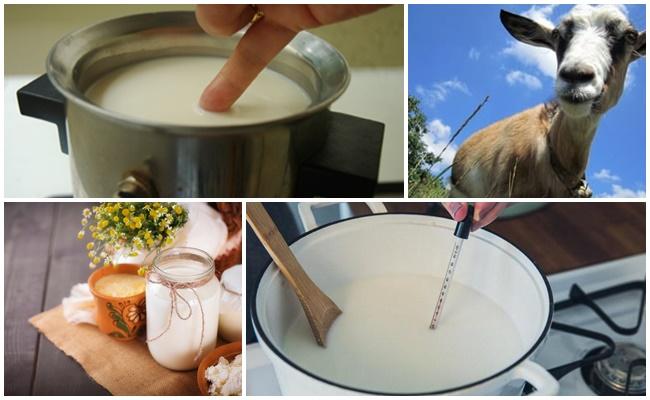
Replacement of boiling with pasteurization is allowed. Then the temperature range is different, up to 72 degrees. So the milk will retain its properties for up to 10 days in a cold place. And the third processing option is freezing. If milk is cooled to -20 degrees, the shelf life is increased to six months.
Goat milk for baby
For a number of reasons, children, especially small ones, are advised to give boiled milk. Until a year, pediatricians do not advise at all. In babies, the microflora of the stomach and intestines has not yet been fully formed. In addition, the reaction of the body to the raw product is not known.
Gradually, when the child gets used to drinking healthy goat's milk every day, you can try to transfer it to a "raw food diet".
And only an ignorant, ignorant person will challenge the benefits of milk, the substances it contains. Children who use goat's milk from a young age grow strong, healthy, and are less likely to get sick. In addition, there is a lot of calcium, which is so necessary for the formation of the skeleton.
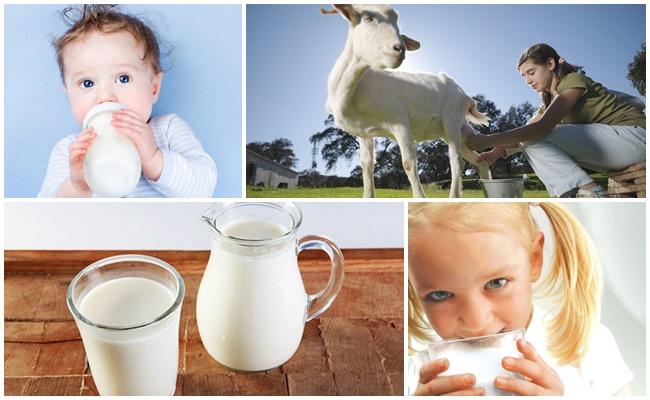
How to store?
Milk that is fresh and without "improving" additives can be stored in the refrigerator without any problems. The following are the main methods with indication of storage periods:
| Processing method | Temperature, degrees | Storage period |
| Raw | – | Up to 3 days in the refrigerator |
| Boiling | 100,5 | 5-7 days in a cold place |
| Pasteurization | 56-72 | 10 days in the refrigerator |
| Freezing | minus 20 | Up to 6 months in a cell |
If you know that you will have time to consume a natural product within the specified period, no additional processing is needed. Just pour it into another container, previously washed with soda.Boiling will definitely extend the shelf life. Again, you shouldn't resort to it unnecessarily, because "it is so accepted."


